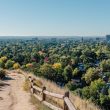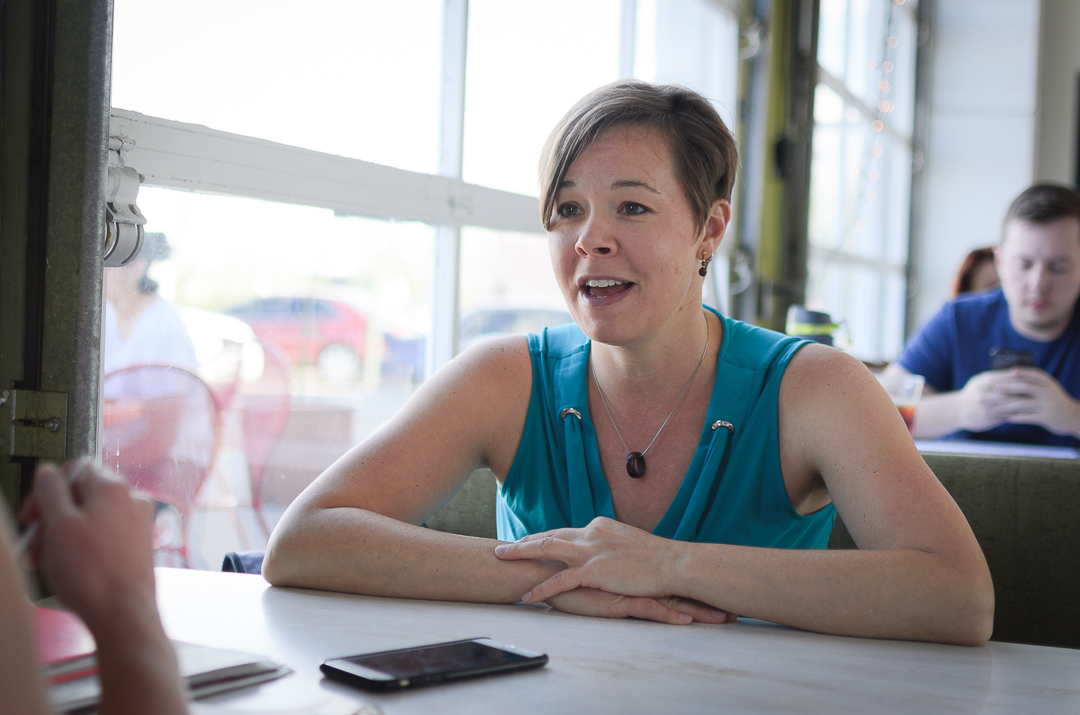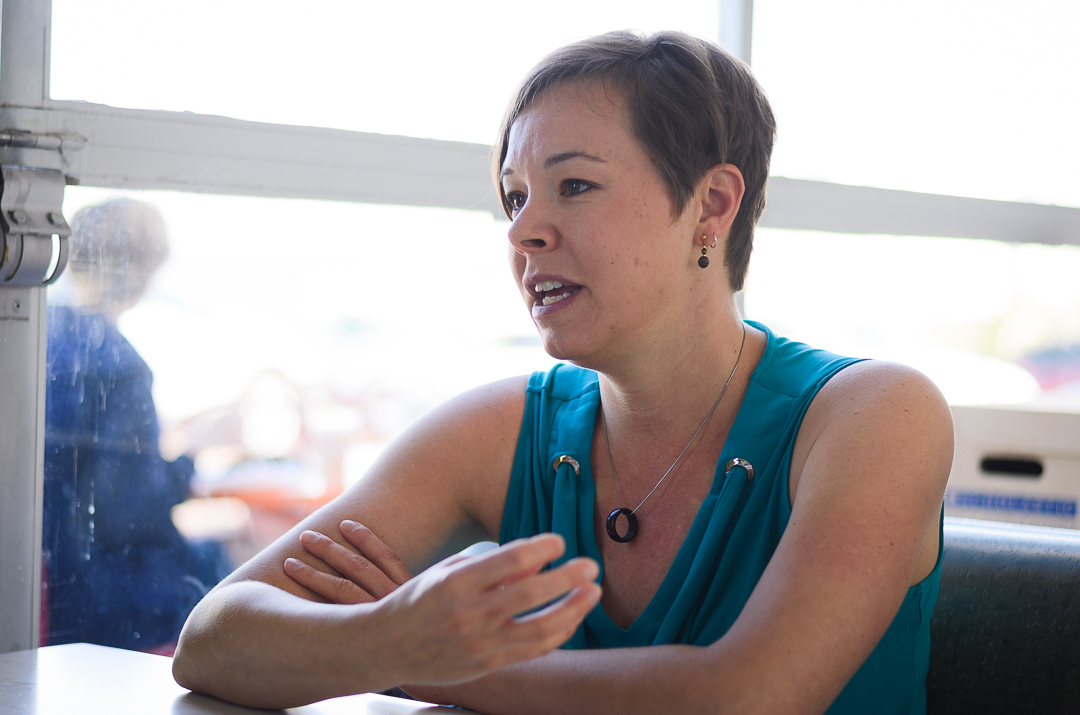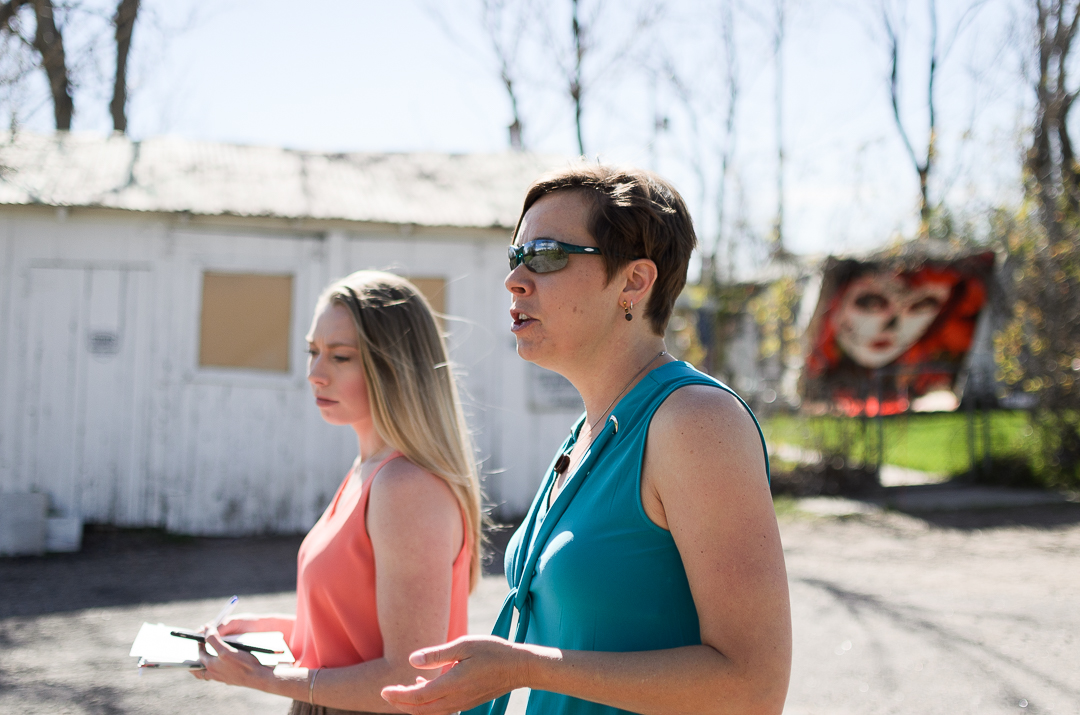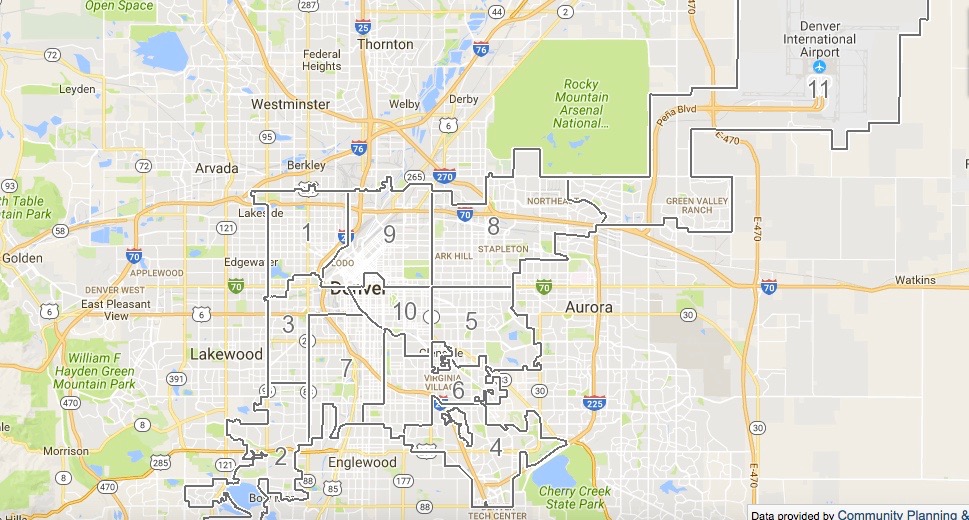This is a series profiling Denver’s City Council members. Each month we grab coffee and take a car ride in their district. Along the way, we get an intimate look at their lives, their worldview and most importantly, their goals for their districts. Go here to read past profiles.
“Messy is a word we use to explain a conflict with an expectation we had. Eliminate the expectation, and you eliminate the ‘messy’” –Steve Maraboli
This quote from author Steve Maraboli pricks at a note in at-large Councilwoman Robin Kniech’s life. As Denver’s first out LGBTQ member of City Council, Kniech is certainly making strides in her own right, in a messy world, in a tenacious way.
“Life is messy and progress matters. I think I worry a little bit about the ‘all or nothing’ approach that I kind of see, which is that all politicians are corrupt or government can never do anything right or these standards that are so high that what really happens is it disempowers communities. It makes them feel like there’s no reason to talk, there’s no reason to get engaged, and that’s just not my experience. Everything I’ve worked on has almost all come to me from the community.”
Kniech’s portfolio of work makes it her career focus to work for the disadvantaged, starting in the non-profit sector. But disadvantaged isn’t the right word, Kniech said.
“I don’t see disadvantage, I see structural inequity,” Kniech said. “We all have individual failures. I’ve had them. What’s prevented them from stopping my trajectory, and why am I still on a course of success? Well, it has to do with privilege I was born into.”
She sees the messy. Growing up in working-class family, her parents were factory union workers — her step-dad still works at the same factory he did when she was growing up. Kniech, is obviously white, and she admits she had privileges with this. However, she relates to other minorities, being lesbian herself.
“I stand on the shoulders of giants,” Kniech said. “I may not be African-American or Latino, but job opportunities and getting rid of inequities for communities of color is my job. Just like there were not gay and lesbian people on the City Council, but creating equal employment opportunity for gay folks was their job.”
Denver in a sense led the way with non-discrimination against LGBTQ members with Ordinance 623 of 1990, which prohibited discrimination in employment, housing, education, health, welfare, public accommodations or commercial space on the basis of sexual orientation. Opponents of the ordinance pushed a ballot measure to eliminate protections for sexual orientation. In May of 1991, 54.7 percent of Denver voters affirmed the Nondiscrimination Ordinance 623.
The opponents appealed to the State of Colorado with Amendment 2, No Protected Status for Sexual Orientation Amendment, passed in 1992. It was overturned in the 1996 Supreme Court Case, Romer v. Evans. Justices later referenced this case to strike down state bans on same-sex marriage in Obergefell v. Hodges.
“I will say I still experience some surprising attitudes or some surprising inherent bias that people might not even realize they have. I had a recent experience with that,” Kniech said.
While she wouldn’t share her recent experience, Kniech said that “our work is not done.”
“I think what we learned from the gay marriage discussion is that talking about equal rights, civil rights did not change the debate. Talking about love and telling stories about family, that moved people,” Kniech said.
Her personal story is one of a mom, partner and busy, modern working woman. She has a young son and partner — a family that’s busy but has learned to celebrate the good things.
“I think the other thing I’ve learned about who I am is that I’m a mom, and I’ve got this private side of me too that’s really important to nurture,” Kniech said.
But she says, “There’s no balance,” between her personal and work life; it’s a constant give-and-take.
“My hope is that some of the sacrifices I make in terms of missing dinner with my kid — tonight I have formal dresses in my car because I’m going to dinner tonight instead of going home to be with my son — is that he will somehow have had enough understanding that what I’m doing to, for example help the homelessness or help affordable housing, that I was doing it for good reasons,” Kniech said.
Kneich is marrying her partner this September, and she wears her engagement ring around her neck. It’s a simple, wooden circle her partner bought and gave her while vacationing in Belize.
The messy progress she’s after is for the community as a whole, for the greater well-being, not just LGBTQ members. Which makes sense. Being an at-large council member means she represents the entire city of Denver with one other at-large council member, Deborah Ortega. What rang out louder than anything else during our coffee and car ride was that she fights for who or whatever may have, as she calls it, “structural inequity.” She was integral in establishing a dedicated affordable housing fund that will create or preserve at least 6,000 new homes over the next 10 years.
“I think that folks have incredible potential whether they are coming out of prison or whatever their life story, it’s all about how do we make this system allows them to find that potential and isn’t holding them back,” Kniech said.
The coffee shop we met at, Prodigy, employs youth in the area through an apprenticeship type program — giving them jobs to stay out of gangs or a safe place to go. We then drive by a construction site, fenced off in the Five-Points area. This development will create more affordable housing for people in the neighborhood, and a site Kneich has worked hard to see built.
Tucked away behind highways, roadways, train tracks, overpasses and perhaps structural inequality, sits the community of Globeville. It’s a mixed community — some residents are older, some are hipsters, some low-income and even some horses. And in Globeville, rests the remains of the Argo Smeltor, where rocks and heavy metals were burned, and leaving an open, natural space contaminated with things like lead.
Kniech said this open space in the middle of Denver is where stolen cars are dumped, people go mudding, dirt dumping, crime and is a place where kids play.
“A lot is happening in this neighborhood that the residents didn’t ask for,” Kniech said.
City council members Albus Brooks and Ortega have done a lot of work to help the Globeville community, but the work done is pertinent to Kneich’s story because she fights for environmental protections, local hiring and affordable housing — all of which are present in the Globeville community.
After years of figuring out the funding and natural impacts, the city is now committed to purchasing the land and turning it into an open space with natural grasses, fences and crushed paths for Globeville residents to enjoy. Kniech had advocated and fought for affordable housing in all areas of Denver, not just where the land is cheap.
For her, part of the progress — part of changing and sorting out the messy — is persistence.
“I’m pretty tenacious. I’m a critical thinker. I think my positivity is I think everything can be done, I really do, and when people tell me no, I just don’t believe them. I think it can be done, it’s about how,” Kniech said.
All photography by Austin Cope. Go here to check out our other profiles on city council people in our Coffee and Car Rides series.




